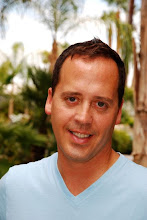My closest brushes with the hard sciences in the last few years have been sitting next to a physics teacher in meetings. The social scientists I see and talk to all the time. That stuff rubs off, man, and I can talk about sociology until the cows come home in groups and organize themselves into social networks.
Previous to my current job as Dean of This and That, I was Dean of Nearly Everything at College on the Lake, Duluth. There I palled around with the geologist and the gym teacher (exercise science, if you will). Before I worked at COLD, I had many conversations with college teachers of all disciplines about their work. (Nothing gets an academic going better than the generic, “and what do you do?”)
So, to put my science knowledge into song (and who wouldn’t want to?), I’d have to say, “I know a little bit about a lot of things.” I give you Miss Diana Krall, or Mrs. Elvis Costello, depending. (Play the vid while you read the rest of this post.)
She's lovely but don't we all wish she would do something with that hair?
So when I say that I’m convinced that my new diet has a sound scientific basis, I’m going on my humanities-based knowledge of science. You say “physiology,” I say “wha??”
However, I am stubbornly persistent in asking people why they want me to do something. Not just in the “what’s in it for me” sense. But I have a trained academic’s insistence on some kind of logical connection between the solution you’re proposing and the problem at hand.
Ask Sean, My Tormentor how often I say to him, “and this will do what for me?” before I actually do the crazy thing he’s asking me to do. (My second most frequent question to SMT is, “What now?”) He gets all bio-mechanical, my eyes glaze again, and I do it. It often hurts later, so it must be working.
Thus my logic tells me Dr. Gundry’s Diet Evolution makes sense. The science, I’m a little sketchy on.
Really, who does know the intricacies of how enzymes turn on our hormones and react in our brain to trigger or turn off our hunger pangs? Do we really know that much about the brain? My eyes glaze a bit when I get to those parts. It seems to make a certain sense to me, though, so I’ve been following this diet for about six weeks.
With or without fully understanding the science, I do believe processed foods are killing us. Such things at Triscuits—not to mention McDonalds—did not exist one hundred years ago, and neither did childhood obesity. W. K. Kellogg invented the Corn Flake because he was a corn flake. To our everlasting regret, breakfast cereal is now a staple in most American kitchens. Over-processed, “enriched” with vitamins we should be getting elsewhere, conveniently boxed and overpriced, who needs it?
Good movie about that nut job, Kellogg.
(When I had braces five years ago—my family couldn’t afford orthodonture in my youth—I stopped eating breakfast cereal. Shredded Wheat and granola got caught in those tracks. I lost ten pounds in a month.)
So this diet has turned my world a little askew. For years I read and used recipes from Jane Brody’s Good Food Book, which stressed a high carbohydrate (and whole grains) approach. In fact, when I moved to California, hers was one of three cookbooks I kept. Jane has been a hard habit to break. I’m sad to say goodbye to bread, pasta, beer, bread, pancakes, and bread.
But I’m very pleased to have a set of guidelines to help me in the grocery store. Formerly a what-am-I-in-the-mood-for shopper, I now know how to choose greens, vegetables, and proteins, and I use them up before they go bad.
And, oh, yes, I lost weight.
Like electricity, I don’t have to understand how it works, it just does.



Even the sounds of Krall didn't calm me as I read on.
ReplyDeleteYou harsh on my Triscuits?
You swear off the yeasties?
You lose weight?
This is NOT how I want the world to be, especially when I want to lose 10 pounds (plus 20 more), but I want the world to discover huge ingestion of Triscuits and yeasties are the key.
But, er, congrats on weight loss, Beautiful.